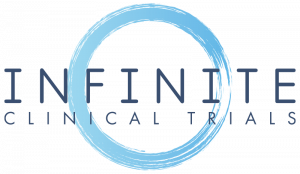Careers
Join the Infinite Clinical Trials Team - Careers in Medical Research
Headquartered in Riverdale, Georgia, Infinite Clinical Trials is rapidly expanding its expertise in the clinical research fields of Endocrinology, Neurology, Rheumatology, Cardiovascular, Infectious Diseases, Sleeping Disorders, Women’s Health, Aesthetic and Family Medicine. Infinite Clinical Trials expert team has extensive experience in conducting clinical research in accordance with the standards of our Sponsors and CROs.
We are currently seeking the following, please apply:
Job Requirements:
- CRC proof of certification
- Compensation: to be discussed
- Fluent in English and Spanish
- Minimum 2 years of experience in Clinical Research
Job Description:
The Clinical Research Coordinator (CRC) comprises an integral part of the research team. Working under the PI, he/she is responsible for conducting the study in accordance with federal regulations. CRCs also give potential Sponsors a “first impression” of Infinite Clinical Trials, including the ability of the center to recruit and retain research subjects. Some responsibilities of the Clinical Research Coordinator (CRC), depending on the wishes of the PI, include but not limited to:
- Submitting regulatory documents to IRB and Sponsor
- Submitting the clinical study agreement to OSP for review
- Attending investigator meeting(s)
- Developing a preliminary budget and verify all costs
- Helping PI negotiate the study budget direct costs with sponsor to cover all costs (F&A costs are not negotiable)
- Preparing for study initiation
- Obtaining physician signatures
- Recruiting subjects
- Screening and scheduling subjects
- Getting voluntary subject consent
- Teaching subjects about protocol expectations for them
- Performing study/protocol procedures in a detailed, accurate manner
- Maintaining study files
- Tracking and maintaining the study budget and payments, including invoicing the sponsor for completed work
- Tracking subjects, avoiding lost-to-follow-up
Documenting an adverse event, including:
- Describing the event severity and frequency
- Treatment
- Resolution
- Processing and shipping lab work
- Completing case report forms (CRA) for PI review and approval
- Helping study monitors with CRA corrections (Hint: Using black ink, put a single line through incorrect information so that others can still read the original entry. Add your signature and date of this change. Never use “white out” liquid correction fluid to make changes on regulatory or other documents including IRB and FDA forms)
- Maintaining study-specific supplies
- Preparing for study closure and archiving
Clinical trial investigators play an important role in the development of products to combat disease, treat chronic and degenerative diseases, and improve the health of people around the world. The rapid development of new drugs, therapies and devices has dramatically increased the number of clinical trials required to properly evaluate them.
How To Become A Principal Investigator:
A Principal Investigator (PI) is the physician who leads the conduct of a clinical trial. The leadership role of the PI helps create the foundation of a successful clinical trial. The doctor who chooses to be a PI can offer his/her patients the possibility of receiving unapproved yet promising treatments, while assisting drug companies to evaluate the efficacy and safety of these treatments.
The PI is responsible for all clinical research activities at the center. The FDA mandates the PI to sign form 1572 that outlines the specific responsibilities a doctor must accept as leader of a clinical investigation. These responsibilities are defined as “Good Clinical Practice” (GCP). GCP is outlined in the Code of Federal Regulations (CFR) in sections 50, 56, 312, and 314. Please refer to the link below for more information about GCP.
To successfully run a clinical trial, certain ancillary staff are typically required to support the PI. Most clinical trials employ a study coordinator, a clinically-oriented individual who is involved in the daily operations of a study mandated by a protocol under the supervision of the PI. This person will often schedule patients, perform minor assessments and laboratory work (depending on level of clinical skills), and organize the data for transfer into Case Report Forms (CRF). CRFs are the official records that drug companies use to house the data collected by the Investigator. It is critical that the information contained in a CRF be accurate, as it is the final information used by statisticians to analyze the safety and efficacy of an investigational medication. As a PI, your responsibilities are two-fold: to assure that your patients receive the best medical care, and to assure that all study-related activities follow the FDA guidelines of GCP
Resources for Conducting Clinical Trials:
Conducting clinical trials requires a number of resources. The more resources a physician can provide, the more likely he/she will be invited to participate in a study. Here are some of the most common resources:
- Examination Rooms for conducting physicals and patient interviews.
- Office equipment such as a computer, fax machine, and telephone for patient scheduling and study correspondence.
- Phlebotomy and laboratory shipping materials storage area.
- A locked storage area for study materials and study medication.
- A locking calibrated refrigerator and freezer for lab samples (and potentially study medication).
- Adequate working space for on-site visits from sponsor representatives or regulatory authorities.
- A secure storage area for archiving study records as required by the FDA.
- The PI and ancillary study staff should be available to the sponsor company to review study issues and answer pertinent study related questions.
How to Become Involved in Clinical Trials?
There are many avenues by which physicians may enter the clinical research field.
- Contact pharmaceutical or biotechnology companies, and Contract Research Organizations (CRO\’s) directly through their web sites or main phone numbers.
- Advertise your services on the internet and/or in industry publications.
- Attend annual meetings for organizations such as the Drug Information Association (DIA) and the Associates of Clinical Research Professionals (ACRP).
- Contact a Site Management Organization (SMO). An SMO is a centralized organization sponsoring the activities of several clinical sites under one umbrella. SMO\’s provide physicians an excellent opportunity to gain research experience.
It is important to be versed in the regulatory requirements involved in the conduct of clinical trials. Classes and seminars are offered by organizations like Drug Information Association (DIA), Association of Clinical Research Professionals (ACRP), and Barnett International.


